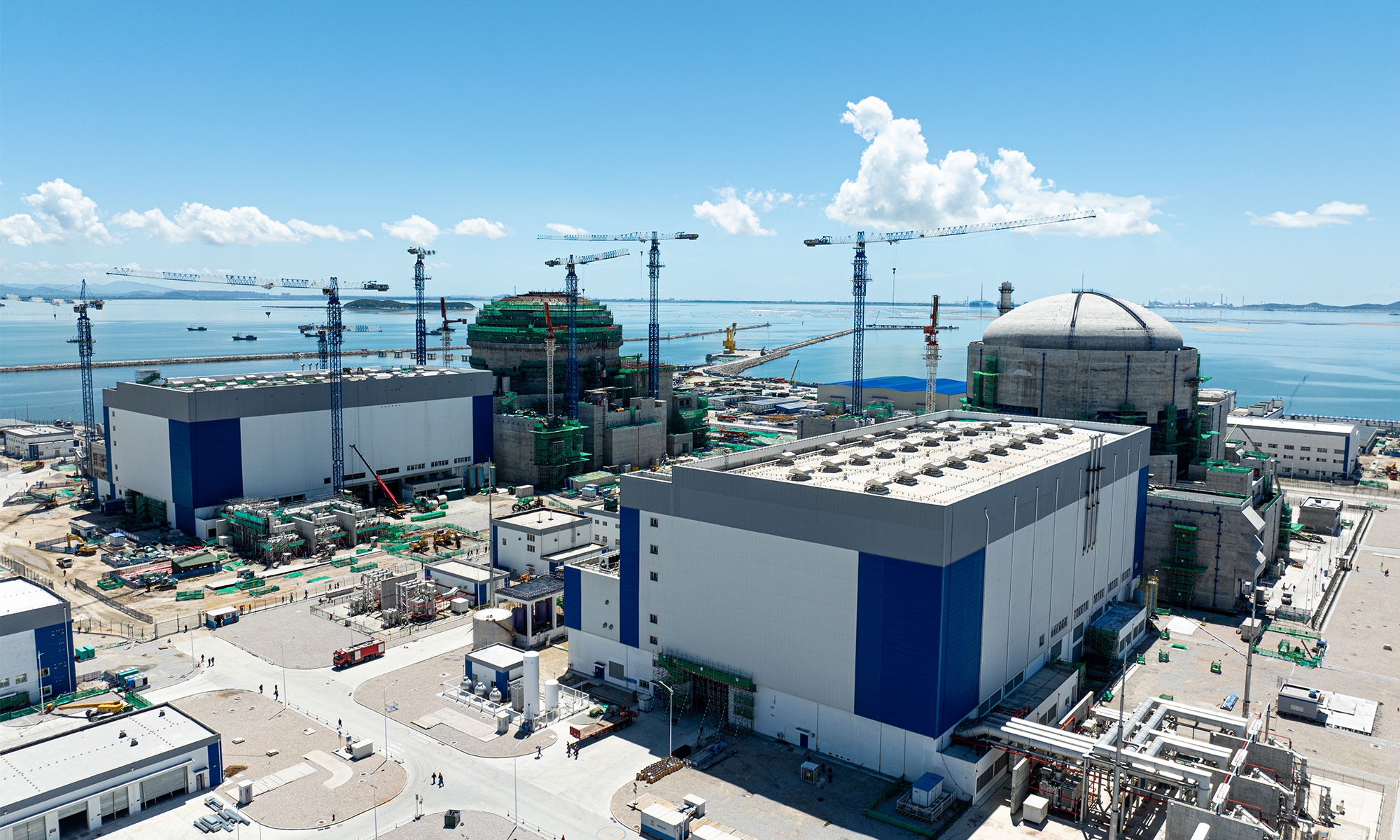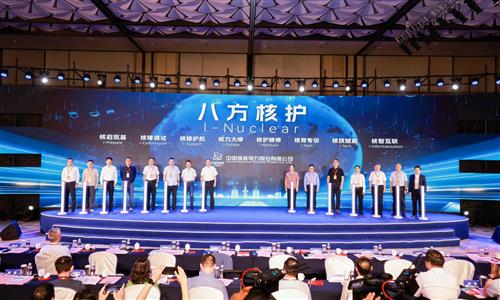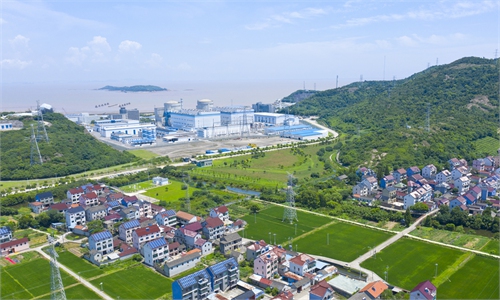Advanced Hualong One reactor at Zhangzhou nuclear power plant linked to State Grid: CNNC

Aerial view of the No1 nuclear power unit run by the China National Nuclear Corporation (CNNC) in Zhangzhou, East China's Fujian Province. Courtesy of CNNC.
An advanced Hualong One reactor unit installed at Zhangzhou nuclear power plant in Zhangzhou, East China's Fujian Province, and operated by the China National Nuclear Corp (CNNC), has been connected to the State Grid, the CNNC said on Thursday.
The achievement marks another milestone in the large-scale construction of the Hualong One - China's homegrown third-generation nuclear reactor, boosts China's green energy transition efforts, and also highlights the country's progress in advanced nuclear reactor innovation, analysts said.
The reactor is located at the Zhangzhou nuclear power plant and has met conditions for commercial operation, according to information the CNNC shared with the Global Times on Thursday.
According to plans, the Zhangzhou project will build six million-kilowatt Hualong One units, with four already under construction now.
The project's completion is of great significance to the optimization of China's energy structure and the promotion of green and low-carbon development while contributing to the country's carbon neutrality goal, industry experts said.
Upon full completion, the Zhangzhou nuclear power plant is expected to generate 58 billion kilowatt-hours of electricity per year, which will help alleviate local energy shortages and provide strong support for the nation's "dual carbon" goals - reaching peak carbon emissions by 2030 and attaining carbon neutrality by 2060, according to CNNC.
As of now, there are 33 nuclear power units using the Hualong One advanced reactor, according to the CNNC. This means the Hualong One is the third-generation nuclear reactor that boasts the highest number of units under construction or in operation in the world, making the country among the world leaders in nuclear power technology.
The persistent pursuit of nuclear power advancement by Chinese scientists over the decades has led to a global milestone in third-generation pressurized water reactor technology with the development of the Hualong One, Lin Boqiang, director of the China Center for Energy Economics Research at Xiamen University, told the Global Times on Thursday.
"The Hualong One is emerging as a new quality productive force, bolstering energy infrastructure and advancing green development in China and the world," Lin said.
Nuclear power generation on the Chinese mainland reached 440,000 gigawatt-hours in 2023, accounting for nearly 5 percent of total national electricity output, according to the China Atomic Energy Authority.
As of the end of 2023, there were 55 operational nuclear power units and 36 approved or under-construction nuclear power units on the Chinese mainland, the Xinhua News Agency reported.
Global Times




